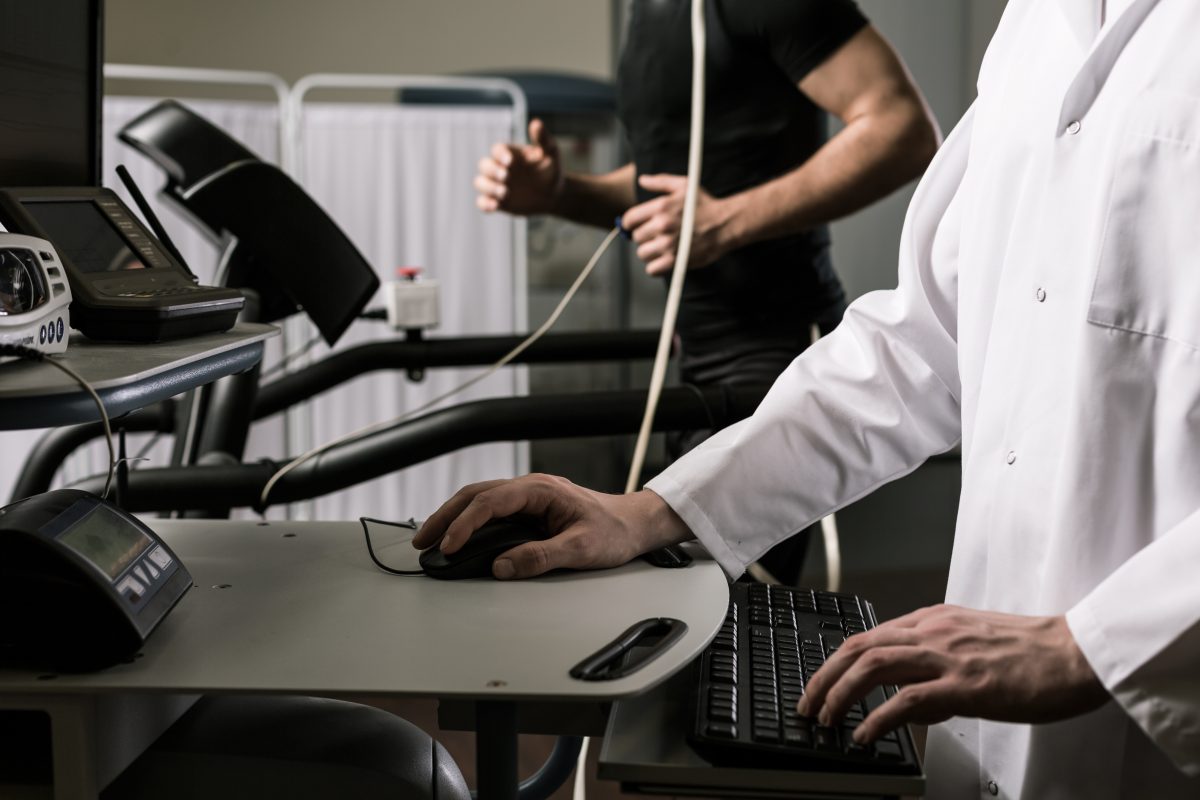Are you gearing up for an exercise stress test? If so, you’ve probably been told to lay off the caffeine beforehand. It might seem like a small detail, but this advice is crucial for ensuring accurate test results. In this article, we’re going to explore the reasons behind this recommendation. From learning how caffeine affects your body to ensuring the most accurate assessment of your heart’s health, we’ll cover all you need to know before you hit the treadmill for your test.

Contents
- 1 Why No Caffeine Before Exercise Stress Test?
- 2 Benefits of Avoiding Caffeine: Impact on Test Results
- 3 Risks of Caffeine Consumption
- 4 Frequently Asked Questions
- 4.1 Why should you avoid caffeine before an exercise stress test?
- 4.2 How will caffeine affect the outcome of an exercise stress test?
- 4.3 How long should you refrain from consuming caffeine before the test?
- 4.4 What can patients expect during an exercise stress test?
- 4.5 What should patients do to prepare for an exercise stress test?
Why No Caffeine Before Exercise Stress Test?
There are two main reasons why you should avoid caffeine before an exercise stress test, particularly if it’s a chemical stress test using adenosine:
-
Adenosine competition: Caffeine interferes with a medication called adenosine, which is often used during chemical stress tests. Adenosine helps increase blood flow to your heart muscles. Caffeine blocks the effects of adenosine, potentially making it harder for doctors to see any reduced blood flow in areas with narrowed arteries.
-
Misleading heart rate: Caffeine is a stimulant, which can elevate your heart rate and mask the effects of exercise on your heart. This could lead to an inaccurate assessment of your heart’s ability to handle stress.
To ensure the most accurate test results, doctors typically recommend avoiding caffeine for 12 to 24 hours before an exercise stress test, ideally 24 hours. This includes coffee, tea, soda, energy drinks, and even chocolate, as they all contain caffeine.
Benefits of Avoiding Caffeine: Impact on Test Results
When preparing for your exercise stress test, avoiding caffeine can significantly affect the accuracy of your results. Here’s how steering clear of that morning cup of joe can benefit you:

- Maintains Accurate Heart Rate: Caffeine can elevate your heart rate, which could interfere with the test readings. Skipping caffeine ensures that your heart rate stays steady and reflects your true baseline.
- Optimizes Exercise Physiology Readings: Caffeine’s stimulant effects might skew the results of the stress test, giving an inaccurate picture of your exercise physiology. By avoiding caffeine, you’re allowing the healthcare provider to get a clear assessment of your physical performance.
- Enhances Focus and Alertness: Without the jittery effects of caffeine, you can focus better during the test, helping you perform at your best and follow instructions accurately.
- Reduces Risk of Fatigue: Caffeine can lead to a crash, leaving you feeling fatigued and impacting your performance. By skipping it, you’re less likely to experience fatigue during the test, allowing you to give your all.
Risks of Caffeine Consumption
Specifically for an exercise stress test, the main concern with caffeine consumption is its interference with the test’s accuracy. Here’s how caffeine can affect the results:

-
Masking effects on heart rate: Caffeine is a stimulant that naturally increases your heart rate. This can mask the true effects of exercise on your heart, making it harder for doctors to assess how well your heart responds to stress. During the test, they want to see a significant rise in heart rate with exertion. Caffeine can blunt this rise and potentially hide any underlying issues.
-
Competition with adenosine (in chemical stress tests): Some stress tests use a medication called adenosine to simulate the effects of exercise and increase blood flow to your heart muscles. Caffeine directly competes with adenosine, blocking its action. This can prevent proper dilation of blood vessels and make it difficult to detect areas with reduced blood flow, which might indicate narrowed arteries.
Overall, avoiding caffeine ensures the test results accurately reflect your heart’s response to stress.
Frequently Asked Questions
Why should you avoid caffeine before an exercise stress test?
Consuming caffeine before a stress test can impact heart rate and blood pressure readings, affecting the accuracy of results. It may lead to decreased exercise performance, increased fatigue, and distorted evaluation of heart function under stress.
How will caffeine affect the outcome of an exercise stress test?
Caffeine can interfere with assessing the heart’s response to physical activity accurately by masking underlying issues or creating false alarms. It can distort the evaluation of physical capabilities and heart function under stress, leading to unreliable results.
How long should you refrain from consuming caffeine before the test?
It’s crucial not to consume any caffeine, including coffee, tea, soda, or chocolate, for a full 24-hour period before the exercise stress test. Migraine medications containing caffeine should also be avoided to ensure effective test results.
What can patients expect during an exercise stress test?
Patients will walk on a treadmill for 5 to 15 minutes, with gradual increases in speed and incline. Heart rate, blood pressure, and EKG will be monitored. After the test, patients may feel tired for a few hours, especially if they are not regular exercisers.
What should patients do to prepare for an exercise stress test?
To prepare for the test, patients should avoid eating a large meal two hours before, bring any necessary medications like inhalers, refrain from using lotions on the chest or back, and wear comfortable athletic shoes and clothing.

Hello, I’m Ravindra. Over the years, I’ve immersed myself deeply into the world of fitness and health, transforming both my body and mind. Writing has allowed me to share my journey, insights, and expertise with those just starting out and seasoned fitness enthusiasts alike. Beyond just routines and diets, I believe in inspiring others to adopt a holistic approach to well-being.
